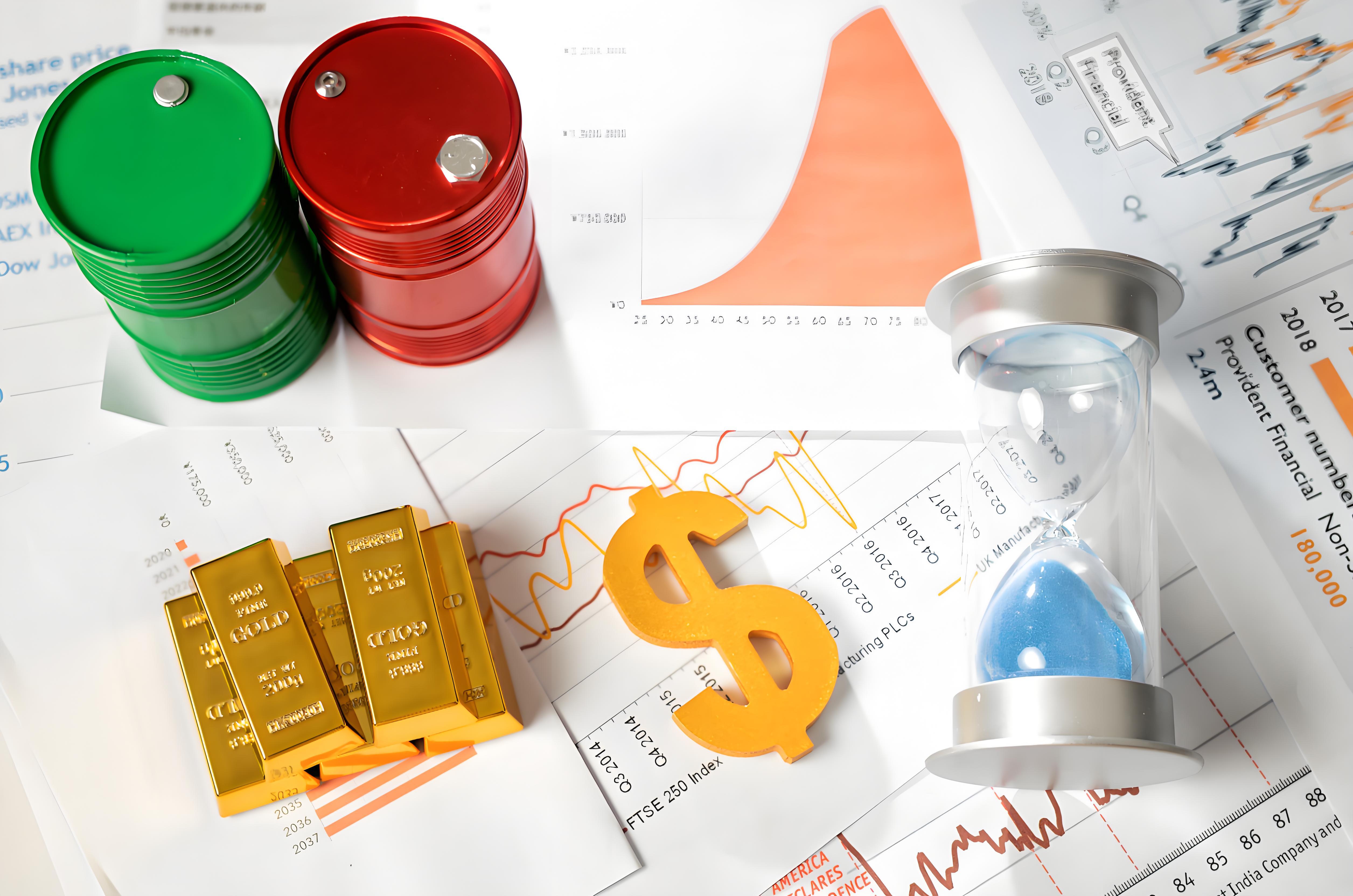
Against the backdrop of the evolving global economic landscape, the dynamics of the commodity market have always been the focus of attention for investors and economic observers. In the first week of January 2025, the international crude oil and gold markets showed a significant upward trend, having a multifaceted impact on the global financial market and economic development.
WTI February crude oil futures demonstrated a strong upward momentum during the week. At the close of trading on Friday, the price rose sharply by $2.65, with an increase of 3.58%, and the final quotation was $76.57 per barrel. This increase not only reflects the activity of the market trading on that day but also embodies the upward trend of the whole week. From the weekly data, WTI crude oil rose by 3.53% cumulatively. This steadily recovering trend is supported by multiple factors. On the one hand, the expectation of global economic recovery is gradually strengthening, and the manufacturing data of major economies such as the United States has improved to some extent, which has increased the market's expectation of crude oil demand. On the other hand, the Organization of the Petroleum Exporting Countries (OPEC) and its allies have continuously advanced the production reduction agreement, effectively controlling the supply side of crude oil and providing strong support for oil prices in terms of the supply and demand relationship.
The performance of Brent March crude oil futures is also remarkable. At the close of trading on Friday, its price rose by $2.84, with an increase of 3.69%, and was reported at $79.76 per barrel. Compared with WTI crude oil, Brent crude oil has a more prominent increase, with a cumulative increase of 4.25% for the whole week. In addition to the similar supply and demand factors as WTI crude oil, the price increase of Brent crude oil is also affected by geopolitical factors. The situation in the Middle East remains tense, and some oil-producing countries face the potential risk of supply interruption. Investors are worried about the shortage of supply and have flocked into the market to go long on Brent crude oil, pushing the price to climb continuously. This geopolitical uncertainty makes the price of Brent crude oil more sensitive to fluctuations in the international crude oil market and further strengthens its upward trend during the week.
COMEX gold futures also showed a steady upward trend during the week. The price rose by 0.94% and was reported at $2,716 per ounce. As a traditional safe-haven asset, the increase in the price of gold reflects the complex sentiment of market investors towards the global economic outlook. On the one hand, the volatility of the global stock market has intensified, and investors have transferred some funds to the gold market to seek the preservation and appreciation of assets in order to avoid risks. On the other hand, the monetary policy direction of the world's major central banks remains uncertain, and the fluctuation of inflation expectations also makes gold favored as a tool to combat inflation. In addition, the tense geopolitical situation also provides support for the price of gold. Investors generally believe that gold can better resist market risks during periods of instability.
The increase in crude oil prices directly benefits the upstream enterprises in the energy industry. The profit margin of oil exploration companies will expand with the rise in oil prices, which will prompt them to increase exploration and exploitation efforts and capital investment, thereby driving the development of related industrial chains, such as the petroleum equipment manufacturing and oilfield service industries. However, for the downstream refining, chemical, and transportation industries, the increase in crude oil prices means a significant increase in costs. The increase in the production cost of refining enterprises may lead to an increase in the price of refined oil products, thus having an impact on the transportation industry, increasing logistics costs and ultimately affecting the cost of living of consumers.
The increase in crude oil and gold prices has a wide range of impacts on the financial market. In the stock market, the stocks of the energy sector usually rise with the increase in oil prices, driving the rise of the entire stock market index. However, at the same time, high oil prices may trigger concerns about inflation in the market, leading to an increase in bond yields and putting some pressure on the stocks of other sectors. For gold-related financial products, such as gold ETFs, the increase in the price of gold has attracted more attention and capital inflows from investors, promoting the continuous expansion of their asset scale. In addition, the fluctuations in crude oil and gold prices will also affect the foreign exchange market. For example, the increase in oil prices may lead to the appreciation of the currencies of oil-producing countries and the depreciation pressure on the currencies of non-oil-producing countries.
From the perspective of global economic recovery, the increase in crude oil and gold prices has two sides. A moderate increase in oil prices indicates an increase in global economic demand and is a positive signal of economic recovery. However, if oil prices rise too fast or too high, it may hinder economic recovery, increase the production costs of enterprises, and 抑制 consumption and investment. The increase in the price of gold reflects the market's risk aversion sentiment to some extent, and excessive risk aversion may 抑制 investors' risk appetite and is not conducive to the investment and development of the real economy. Therefore, how to balance the relationship between energy prices and economic growth in the process of global economic recovery has become an important issue that governments and policymakers around the world need to face.
The upward trend of the international crude oil and gold markets in the first week of January 2025 is the result of the combined action of various factors. These factors are intertwined and not only affect the development of the energy industry and the financial market but also have a profound impact on the process of global economic recovery. In the future, with the continuous change of the global economic situation, the crude oil and gold markets will still maintain a high degree of volatility. Investors and policymakers need to closely monitor market dynamics and adjust strategies in a timely manner to cope with potential risks and opportunities.

According to the foreign media The Verge, recently, Tesla CEO Elon Musk's goals in the field of fully autonomous driving (FSD) have once again fluctuated.
According to the foreign media The Verge, recently, Tesla C…
In early 2026, Greenland along the North Atlantic coast bec…
Recently, the century-old American high-end department stor…
Recently, the U.S. stock market has appeared turbulent amid…
Recently, the largest private equity firm in South Korea, M…
In early 2026, after the Trump administration detained Vene…